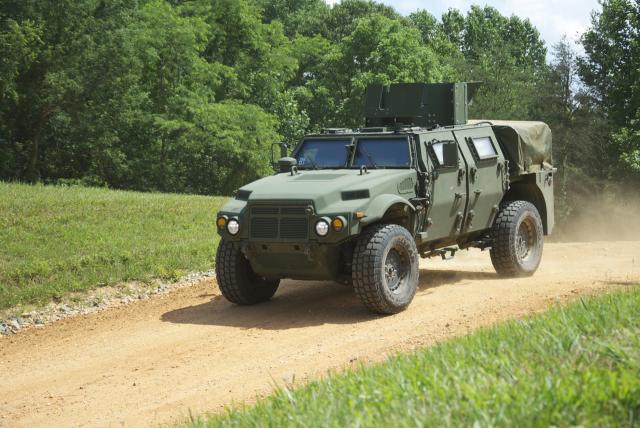WASHINGTON, Aug. 5, 2010 — A NATO Training Mission Afghanistan team is building the Afghan security forces’ capabilities while helping them on the road to self-sufficiency.
“We buy their fuel, we buy their boots, we buy their uniforms, communications gear, their infrastructure, all their equipment,” said Army Col. John Ferrari, deputy commander for programs for NATO Training Mission Afghanistan and Combined Security Transition Command Afghanistan during a “DoD Live” bloggers roundtable yesterday.
The Afghan Security Forces Fund, appropriated by the U.S. Congress, is providing the Afghan security forces with assets needed to grow and sustain their forces, enhancing their capabilities to defend their own country, Ferrari said. His team, he added, works to help the Afghan government generate and sustain 305,000 soldiers and policemen by October 2011. To sustain the forces, he estimated, the cost could range from $6 billion to $8 billion, with up to 25 percent growth in the number of forces. For the fund to continue long-term, without complete assistance from the United States, the international community will have to step in and assist with funding, he added.
Ferrari also discussed “Afghan First,” a program that works with local manufacturers and local companies to ensure money that is spent for the Afghan security forces is invested in Afghan industries.
“We get to know the factory owners, the work force [and] the quality of their products,” he said. “This way, when they’re selling to us, we know we’re getting what we paid for, and we also know that the people who are working are getting a fair wage.”
He said the team has six military officers who run the local acquisition cell, and they’re out on the front lines, working with the factories, meeting the owners and the work force. Programs like this allow local companies to get business and also stimulate the economy and community, Ferrari said.
One of the difficulties his team still faces in the transition of security tasks is illiteracy.
“I think that the illiteracy rate is one of the greatest challenges we face here,” he said. “It is a difficult challenge enough to train soldiers and policemen, but when they’re also illiterate, you have to spend more time bringing their literacy levels up.” About 20,000 soldiers or policemen at any one time are in a program to bring them to a third-grade literacy level, he said.
To further their academic aspirations, Ferrari said, the plan is for thousands of soldiers and policemen to complete the literacy program while training them to become logisticians, communications officers and intelligence analysts.
“And so we have a plan that will synchronize the literacy, the training of the specialty skills, that will enable the transition, whatever that transition is,” he said. “And so it’s our job to get those forces capable enough as soon as we can in order to meet those conditions.”
Ferrari said as coalition forces partner with Afghan units, over time it will build their capability. He compared it to teaching a child how to ride a bike.
“If they have to go down a hill or around a bend or something happens, they might fall off again,” he said. “And so you pick them up and you put them back on. And every time they go through another obstacle or the enemy gets a little better, they get a little better, until, over time, they’re going longer and longer without assistance.”
Ferrari said that it will take time before all Afghan forces are operating independently and are in the lead.
“I don’t know how long that will take,” he acknowledged. “But there are signs today that the units that have been around for awhile, that have been battle-tested, where the leadership is present, … can take charge under certain conditions for certain timelines,” he said.
Source:
U.S. Department of Defense
Office of the Assistant Secretary of Defense (Public Affairs)

 von
von 